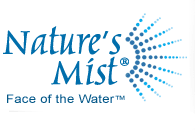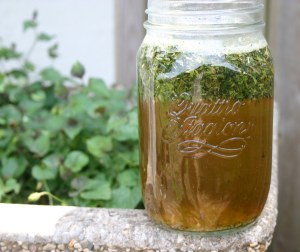 Winter is the season for dry, itchy, flaky skin, reports water and health researcher Sharon Kleyne. According to Kleyne, winter itch occurs because the skin â and the eyes â tend to lose water content more readily in winter than in summer. The result is a seasonal increase in the incidence of dry skin and dry eyes. Although there are several reasons for winter moisture loss in skin and eyes, a primary culprit le the forced-air heating system in your home and office.
Winter is the season for dry, itchy, flaky skin, reports water and health researcher Sharon Kleyne. According to Kleyne, winter itch occurs because the skin â and the eyes â tend to lose water content more readily in winter than in summer. The result is a seasonal increase in the incidence of dry skin and dry eyes. Although there are several reasons for winter moisture loss in skin and eyes, a primary culprit le the forced-air heating system in your home and office.
Sharon Kleyne is Founder of Bio Logic Aqua Research, a water and health research and product development center. Natures Tears® EyeMist® is the companyâs global signature product for dry eyes, dry eyelids and swollen eyes. The Research Center also markets Natureâs Mist® Face of the Water® for dry skin. Kleyne also hosts the globally syndicated Sharon Kleyne Hour Power of Water® radio show on VoiceAmerica and Apple iTunes.
To understand why forced-air heating is so drying, says Kleyne, it is necessary to understand the relationship between air temperature and humidity. According to Kleyne, the lower the air temperature, the less gasified water vapor â also called âhumidity” â the air is capable of holding. On a sunny day, 35-degree air will almost always be far less humid than 80 degree air, even if the 80 degree air is in the middle of the Mojave Desert. The drier the air, the greater the âevaporative pressure,â the tendency of nearby liquid water, including water in skin and tear film, to evaporate into the atmosphere.
With that in mind, Kleyne notes the following about forced-air heating: First, if one takes cold air with very low humidity from the outside and heats it in a furnace, that will not automatically increase the airâs humidity and it may lower it unless the unit also contains a humidifying system. The puddle of water frequently found around outdoor heat pump units is the result of lost humidity as air is sucked into the system.
Second, forced-air heating tends to suck up bacteria, skin particles, mold spores and other household allergens, then re-circulate them throughout the building. Thatâs why one is more likely to get sick in winter than summer. Ambient bacteria and skin particles are dehydrating and irritating to the skin. The filters in most heating systems remove only the largest particles and may add fiberglass to the air.
Third, low humidity air, blown out a heating duct, like any other wind, increases evaporative pressure on skin and eyes and is extremely dehydrating.
In addition to forced-air heating, Kleyne cites other reasons for the increase in dry skin and dry eyes in winter. For example, diet and stress are less manageable during the holidays and both can lead to dehydration. Also, there is less exposure to direct sunlight in winter because of less daylight and more time spent indoors. Sunlight in moderation stimulates vitamin D and improves capillary circulation in the skin.
Kleyneâs suggestions for avoiding winter itch and dry eye: Bathe more frequently to moisturize skin. Shower after bathing to wash off bacteria, allergens and other dehydrating agents. Keep a window cracked open to allow fresh air in and mold spores and allergens out. This is especially important in the bedroom and bathroom. Put baffles on the heating vents to cut down on the wind. Drink at least eight glasses of water a day in addition to all other fluid intake. Use a humidifier, house plants or bowls of water to increase room humidity. Get sufficient sleep, plenty of exercise and follow a healthy diet.
Finally, to supplement skin and eyes water that is lost to evaporation, Kleyne recommends the application of a natural, pH-correct water mist after bathing and whenever skin or eyes feel feels dry. That is the purpose Natureâs Mist® Face of the Water® for dry skin and Natureâs Tears® EyeMist®, both from Kleyneâs Bio Logic Aqua Research. Follow the mist application on the skin with a moisture sealing lotion.




